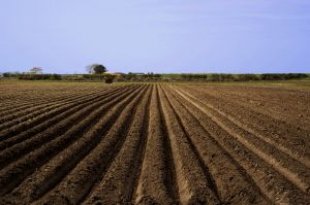Nutrient Value of Fruits and Vegetables Declining: Study

Problem: the higher the crop yield, the lower the nutritional content.
Everyone knows that eating a fruit and vegetable-rich diet is important if you want to stay healthy. It might not be too long before even that’s not enough. A recent study showed significant and worrisome declines in the nutritional value of fruits and vegetables, particularly in terms of protein and mineral content.
Did your grandparents or parents ever remark about how fruits and vegetables tasted better and even looked more appealing a generation ago? Well, maybe they’re not imagining that. Prior to WW II, when most farming in the US took place on family farms, everything was different in terms of growing food crops. Without today’s high-yielding pest-and-drought resistant GMO cultivars, without modern herbicides or pesticides, and with cruder irrigation and other farm equipment at their disposal, farmers grew their food in a more natural way, for better or for worse.
Today’s mega factory-farms are run more like large scale industrial operations than what we usually think of when we think of farming. The nutritional value of the crop is probably the farthest thing from the minds of the agribusiness concerns that run these farms. Instead, the focus is on maximizing yield and profits.
But this focus on high crop yields comes at a price as a recent report makes clear. If current trends continue, it will demand a radical rethink of the ways we grow and consume plant crops.
The study (read more about it here) examined the available evidence of declining nutrient levels in vegetables and fruit. The evidence suggests that there is a significant trade-off between the nutritional value of crops and the yield of the crop. That is to say, both high yield crop cultivars and farming practices that promote higher yields both seem to compromise the nutritional value of crops.
Fruits and vegetables are already fairly expensive when compared to fast foods and convenience foods; for these and other reasons, very few people eat the recommended 8-9 servings per day, every day. This reality has prompted even conservative mainstream medical authorities to recommend taking a multivitamin each day, to help close some of the presumed nutritional gaps between what a person needs and what they actually get from their diet.
But a multivitamin will never replace all the benefits of a diet rich in fruits and vegetables; you’ll get some of their nutrients, vitamins and minerals, but not all of them. Multis, unlike fruits and vegetables, don’t contribute food calories or fiber (something else most people don’t get enough of).
This presents a dilemma for food growers, public health officials and the public at large since there’s no way to know how permanent or how extensive this trend will prove to be. Growers want to increase crop yields to increase profits, and it’s hard to fault them for that since they don’t get paid according to the nutritional content of their crops. Public health officials want to see people eating more fruits and vegetables, but their expense and the reality of declining nutrient levels makes for a mixed message to consumers. And it’s notoriously hard to influence, let alone change, the food-buying and eating habits of the public.
In the meantime, health-conscious individuals can make the most of this information by realizing that, if anything, it underscores the importance of both nutritional supplementation and consuming plenty of fruits and vegetables. One doesn’t take the place of the other.
Hint: In midwinter, when it’s hardest to obtain fresh produce, you can and should use frozen produce to add fruits and vegetables to your diet since they contain virtually all of the nutrition of fresh produce, including all the fiber. Frozen produce poses much less of a spoilage risk than fresh, too, so it’s more practical than fresh produce.
- Posted in Health, Nutrition and Science News
- 2 Comments



